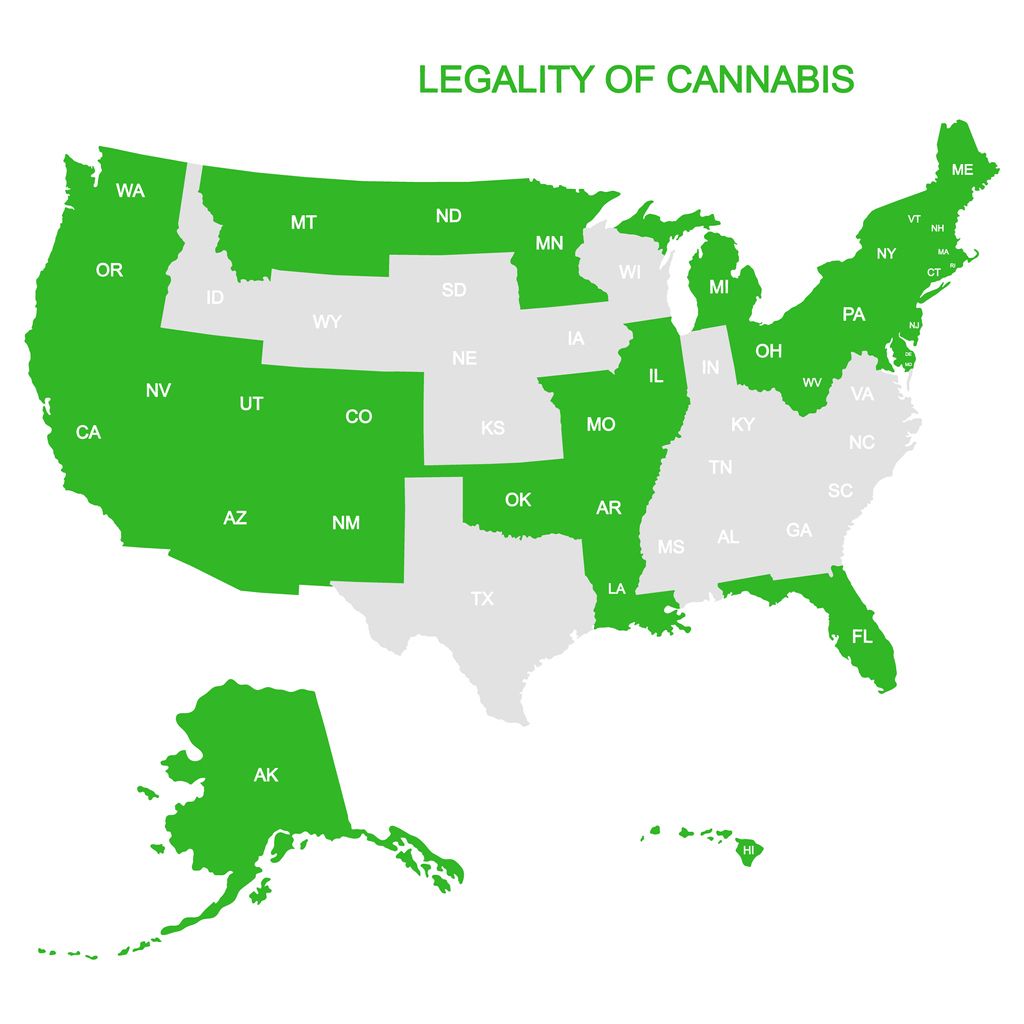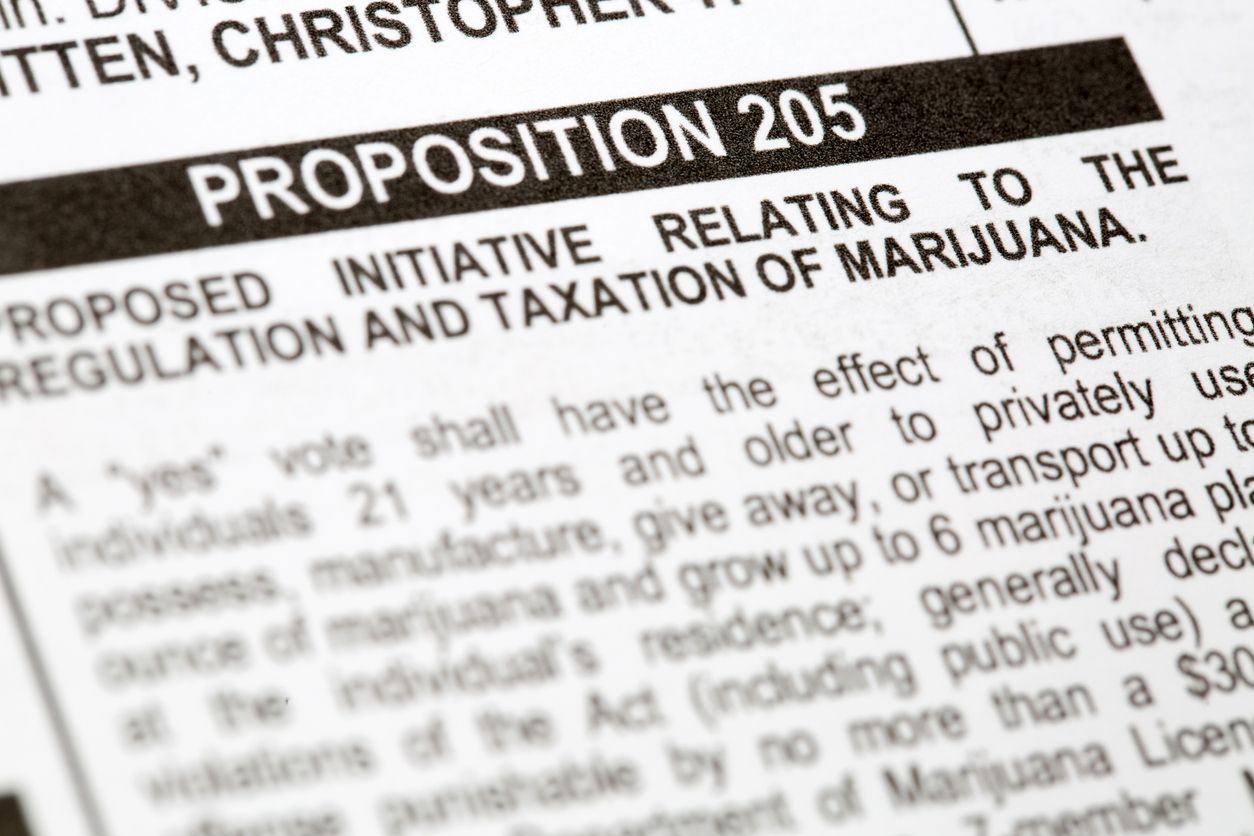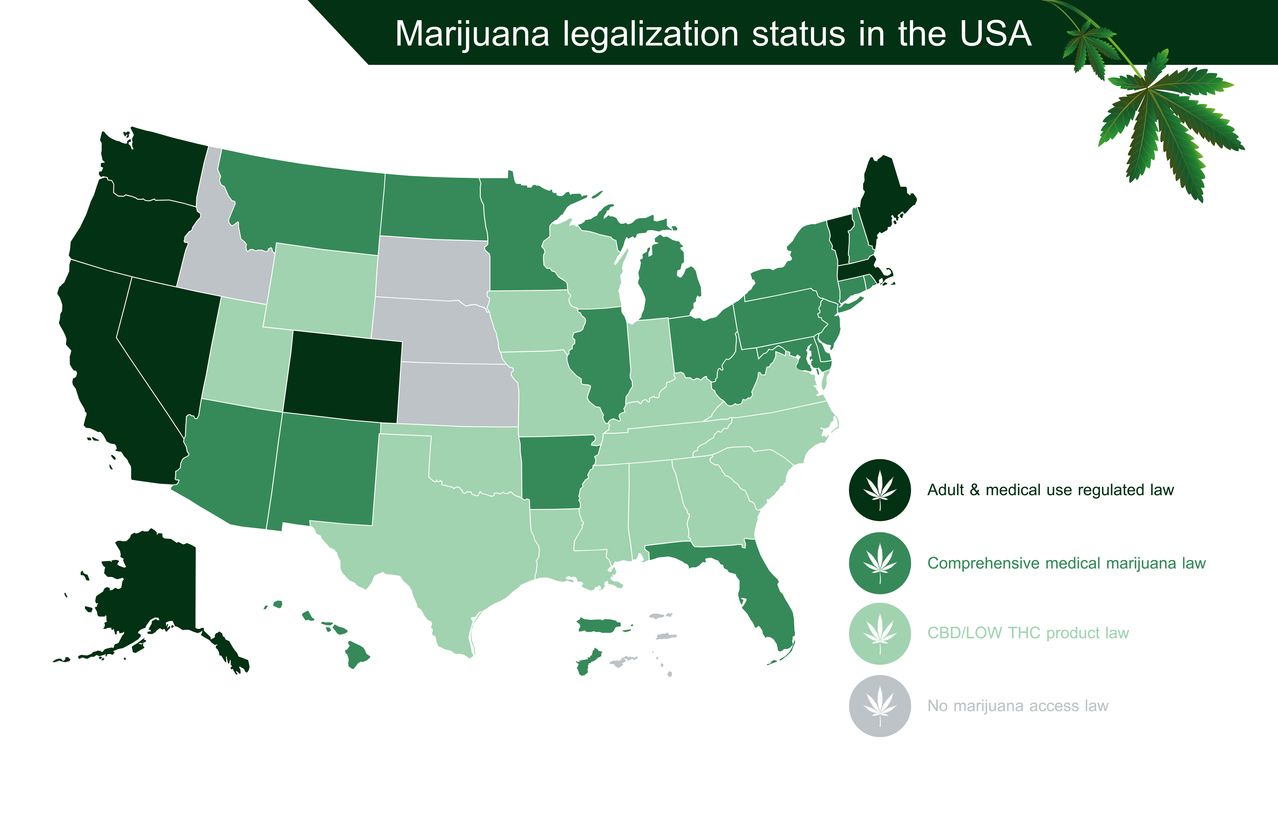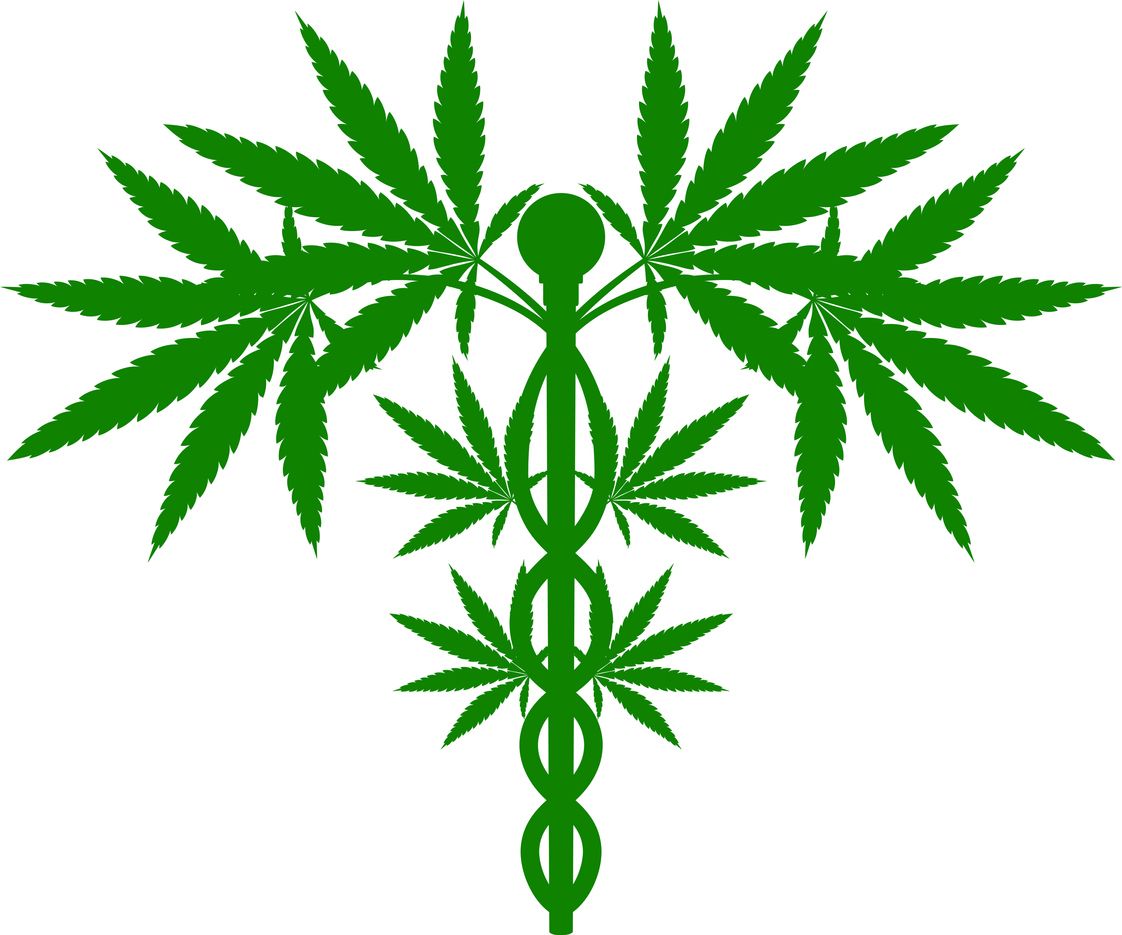39 Conditions and Diseases listed in the Act: Medical Conditions That Qualify for a Medical Marijuana Card by State

The United States is a unique region that has not legalized cannabis at the federal level, which is why the complicated system for medical marijuana is state-specific. What this means, is that each state creates and enforces its own cannabis laws in regard to both medical and recreational consumption. That is why it is so important to know the restrictions and inclusions that might pertain to you before proceeding with an application for medical marijuana.
39 Conditions and Diseases listed in the Act

The Controlled Substances Act, which was created in 1970 by Richard Nixon, still lists cannabis as a schedule 1 drug with absolutely no medicinal benefits or potential, which is why there is currently no federal run medical cannabis programs. However, there are exemptions to this rule, which is why the individual states have slowly evolved, region-specific cannabis laws, to allow for the use of marijuana in situations where a medical reason can be clearly demonstrated.
Laws and history of medical marijuana

Despite the progress made in the medical cannabis community federally, marijuana remains a prohibited drug with a classification that claims there is no medical value to the plant or its components. Though there was a very short time in which the United States government prescribed a select few patients with medical marijuana, once word spread an application began rolling in at an exponential rate, the program was quickly barred from accepting new participants. Since then, various states have introduced their own acts, bills, and regulations to help patients get the relief that they need.
The Pros and Cons of what has happened since marijuana legalization
Unfortunately, federal restrictions prohibit all growers, including legal vendors who are licensed within their region from shipping products over the border. So, while many citizens are now able to get a medical marijuana license, it is sometimes worthless outside of their home state, which has left traveling patients with few to no options while away on business or vacation within the country. Despite this minor setback, patients all over the United States are now able to achieve relief through a state-run medical marijuana card program.
Qualifying conditions for a medical marijuana card by state

Alabama
- Epileptic seizures
The only way to get a medical marijuana card in this region is to apply for state-regulated clinical trials through the Cannabidiol Program.
Alaska
Conditions that may qualify for a medical marijuana card here include:
- Any debilitating chronic disease
- Cancer
- Cachexia
- Glaucoma
- HIV/AIDS
- Nausea
- Pain
- Seizures
- Muscle spasms
- Multiple Sclerosis
Arizona
Conditions that may qualify for a medical marijuana card here include:
- Alzheimer’s Disease
- Cancer
- Chrohn’s
- Gehrig’s disease
- Glaucoma
- Hepatitis C
- HIV/AIDS
- Nausea
- Persistent or severe muscle spasms
- PTSD
- Severe and chronic pain
- Seizures
Arkansas
Conditions that may qualify for a medical marijuana card according to the Arkansas Medical Marijuana Amendment include:
- Alzheimer’s Disease
- Amyotrophic lateral sclerosis
- Cancer
- Fibromyalgia
- Glaucoma
- Gehrig's disease
- Hepatitis C
- HIV/AID
- Intractable pain
- Peripheral neuropathy
- Persistent Muscle spasms
- PTSD
- Seizures
- Severe Arthritis
- Severe Nausea
- Tourette’s Syndrome
- Ulcerative Colitis
California
Conditions that may qualify for a medical marijuana card according to California Proposition 215 include:
- Anorexia
- Arthritis
- Cachexia
- Cancer
- Chronic pain
- Epilepsy
- Glaucoma
- Migraines
- Recurring muscle spasms
- Seizures
- Severe Nausea
Colorado
Conditions that may qualify for a medical marijuana card according to Colorado’s Debilitating Conditions for Medical Marijuana use include:
- Cachexia
- Cancer
- HIV/AIDS
- Glaucoma
- Muscle spasms
- Nausea
- Pain
- PTSD
- Seizures
Connecticut
Conditions that may qualify for a medical marijuana card in this region include:
- Amyotrophic
- Cachexia
- Cancer
- Cerebral Palsy
- Complex Regional Pain Syndrome
- Crohn’s
- Cystic Fibrosis
- Epilepsy
- Glaucoma
- HIV/AIDS
- Hydrocephalus
- Intractable Headache Syndrome
- Neuropathic facial pain
- Nausea
- Muscle Dystrophy
- Muscle Spasms
- Osteogenesis Imperfecta
- Pain
- Post Herpetic Neuralgia
- Post Laminectomy Syndrome with Chronic Radiculopathy
- Psoriasis Psoriatic Arthritis
- PTSD
- Rheumatoid Arthritis
- Seizures
- Sickle Cell Disease
- Spasticity
- Spinal Cord Injury
- Terminal Illness
- Ulcerative colitis
Delaware
This is one of the few states that allows patients who are under the age of 18 to apply for a medical marijuana card. Some of the medical conditions that may qualify for adults to apply for a medical marijuana card include:
- Agitation of Alzheimer’s disease
- Amyotrophic lateral sclerosis
- Autism
- Cachexia
- Cancer
- Decompensated cirrhosis
- Epilepsy
- Glaucoma
- Retractable Epilepsy
- Glaucoma
- Hepatitis C
- HIV/AIDS
- Lou Gehrig’s disease
- Muscle spasms
- Terminal illness
- PTSD
- Seizures
- Severe pain that has not responded to at least three different treatments
Under 18 years of age:
- Chronic and debilitating disease or medical conditions that induces pain
- Epilepsy
- Intractable nausea
- Muscle spasms
- Painful terminal illness
- Severe debilitating Autism
District of Columbia
According to the District of Columbia Municipal Regulations for Medical Marijuana, the following conditions may qualify for a medical marijuana card:
- Cancer
- Glaucoma
- HIV/AIDS
- Multiple Sclerosis
- Severe or persistent muscles Spasms
- Any other chronic or debilitating disease or condition that is treatment-resistant
- Any condition that a doctor may deem effectively treatable with medical cannabis
Florida
Conditions that may qualify for a medical marijuana card here according to the 3891.986 Florida Statutes include:
- Amyotrophic lateral sclerosis
- Cancer
- Chronic pain
- Crohn’s disease
- Epilepsy
- Glaucoma
- HIV/AIDS
- Lou Gehrig’s disease
- Multiple Sclerosis
- Parkinson’s disease
- PTSD
- Any medical conditions or diseases that are similar to those listed here
Georgia
Georgia medical marijuana laws prohibit the sale or growing of cannabis seeds and only allows for strains or products that produce less than 5% THC. Conditions that may qualify for a medical marijuana card here include:
- Alzheimer’s Disease
- Amyotrophic lateral sclerosis
- Autism (in both adults and children)
- Cancer
- Crohn’s disease
- Gehrig’s disease
- Intractable pain
- Mitochondrial disease
- Multiple Sclerosis
- Parkinson’s
- Peripheral neuropathy
- PTSD
- Sickle Cell disease
- Seizure disorders
- Terminal illness and or end of life care
- Tourette’s syndrome
- Epidermolysis bullosa
Hawaii
According to the Eligible Debilitating Medical Conditions List in Hawaii, citizens in this reason may qualify for a medical marijuana card for any one of the following reasons:
- Cachexia
- Cancer
- Crohn’s disease
- Epilepsy
- Glaucoma HIV/AIDS
- Lupus
- Nausea
- Multiple sclerosis
- PTSD
- Rheumatoid Arthritis
- Severe pain
- Severe or persistent muscle spasms
- Seizures
Illinois
Conditions that may qualify for a medical marijuana card here include:
- Agitation of Alzheimer’s disease
- Amyotrophic lateral sclerosis
- Arthritis
- Arnold Chiari malformation
- Cachexia Causalgia
- Cancer
- Chronic inflammatory demyelinating polyneuropathy
- Crohn’s disease CRPS
- Dystonia
- Fibrous dysplasia
- Glaucoma
- Hepatitis C
- HIV/AIDS
- Hydromyelia
- Interstitial cysts
- Lou Gehrig’s disease
- Lupus
- Multiple sclerosis
- Muscular dystrophy
- Myasthenia
- Myoclonus
- Nail-patella syndrome
- Neurofibromatosis
- Parkinson’s disease
- Post-concussion syndrome
- PTSD
- Residual limb pain
- Seizures
- Spinal cord disease or injury
- Spinocerebellar ataxia
- Tarlov cysts
- Tourette’s Syndromes
- TBI
Indiana
In order to legally obtain medical cannabis in Indiana citizens must apply for a clinical trial, and to do so, they must have one of the following qualifying conditions:
- Dravet syndrome
- Epilepsy
- Lennox-Gastaut syndrome
- Seizure disorder
Iowa
This state only allows cannabis derived products and strains that contain less than 3% THC, and to obtain a medical marijuana card, patients must apply with proof of one of these medical conditions:
- AIDS/HIV
- Amyotrophic lateral sclerosis
- Cancer
- Cachexia
- Chronic or severe pain
- Crohn’s disease
- Gehrig’s disease
- Multiple Sclerosis
- Nausea and or vomiting
- Parkinson’s disease
- Seizures
- Severe or chronic pain
- Terminal illness (with life expectancy of less than one year)
- Untreatable pain
Kentucky
Citizens of Kentucky may only use medical cannabis or CBD oil if they are included in clinical trials which do not have a government approved list of qualifying conditions.) which do not have a government approved list of qualifying conditions.
Louisiana
Conditions that may qualify for a medical marijuana card here include:
- Cachexia
- Cancer
- Crohn’s disease
- Epilepsy
- HIV/AIDS
- Intractable pain
- PTSD
- Seizure disorders
- Severe muscle spasms
- Spasticity
Maine
Main is an incredibly progressive state with relaxed medical marijuana laws that allow for any patient who is suffering from a disease, to receive permission from an approved medical professional. To approve this treatment, the doctor must feel that there is some medical benefit regardless of the condition or diagnosis.
Maryland
Edibles and concentrates are not allowed in this region for medical use, so the options available for patients include bud flowers and other infused goods like capsules, lotions, and sprays. To obtain a medical marijuana permit, applicants must show proof of one of the following medical conditions:
- Anorexia
- Cachexia
- Epilepsy
- Glaucoma
- Nausea
- Persistent muscle spasms
- PTSD
- Seizures
- Severe pain
Massachusetts
Conditions that may qualify for a medical marijuana card here according to the Act of Humanitarian Medical Use of Marijuana include:
- Amyotrophic lateral sclerosis
- Cancer
- Crohn’s disease
- Glaucoma
- Hepatitis C
- HIV/AIDS
- Lou Gehrig’s disease
- Multiple Sclerosis
- Parkinson’s disease
- Other debilitating conditions
Michigan
Conditions that may qualify for a medical marijuana card here according to the Michigan Medical Marijuana Act include:
- AIDS/HIV
- Alzheimer's
- Amyotrophic lateral sclerosis
- Cachexia
- Cancer
- Crohn’s disease
- Chronic pain
- Epilepsy
- Glaucoma
- Hepatitis C
- Lou Gehrig’s disease
- Muscle spasms
- Nail-patella syndrome
- Nausea
- Other seizure of pain-causing conditions with a doctors approval
Minnesota
There are no smokable medical marijuana options in this state, and the only legal products are edibles and concentrates. To get approval for this treatment, patients must have one of the following medical conditions:
- Amyotrophic lateral sclerosis
- Autism
- Cachexia
- Cancer
- Crohn’s disease
- Glaucoma
- HIV/AIDS
- Intractable pain
- Muscle spasms
- Nausea or vomiting
- Obstructive sleep apnea
- PTSD
- Seizures
- Severe or chronic pain
- Tourette’s syndrome
- Other medical conditions with approval from a qualified medical professional
Mississippi
Mississippi only recognizes medical CBD oil products for their medicinal benefits, and to obtain a prescription, patients must seek the guidance of a supportive healthcare provider who will help them to apply for clinical trials. At this time, the only condition that is accepted is epilepsy.
Missouri
According to Amendment 2, these are the conditions that may qualify for a medical marijuana card here:
- Alzheimer’s disease
- Amyotrophic lateral sclerosis
- Autism
- Cachexia
- Cancer
- Crohn’s disease
- Debilitating psychiatric conditions
- Epilepsy
- Glaucoma
- Hepatitis C
- HIV/AIDS
- Huntington’s disease
- Intractable migraines
- Neuropathies
- Sickle cell anemia
- Terminal illness
- Any other debilitating condition
Montana
Medical patients in this state cannot purchase dry herb or concentrates to smoke, but they are permitted to purchase edibles, oils, tinctures, capsules, and other infused products. Conditions that may qualify for a medical marijuana card here include:
- Admittance to hospice care
- Cachexia
- Cancer
- Central nervous system disorders
- Chronic pain
- Crohn’s disease
- Glaucoma
- HIV/AIDS
- Multiple sclerosis
- Nausea or vomiting
- Painful peripheral neuropathy
- PTSD
Nevada
Conditions that may qualify for a medical marijuana card here include:
- Aids
- Cachexia
- Cancer
- Chronic and or debilitating pain
- Glaucoma
- Muscle spasms
- PTSD
- Seizures
- Severe nausea
- Other painful medical conditions as prescribed by a doctor
New Hampshire
Conditions that may qualify for a medical marijuana card here include:
- Alzheimer's
- Amyotrophic lateral sclerosis
- Cachexia
- Cancer
- Chemotherapy-induced anorexia
- Crohn’s disease
- Chronic pancreatitis
- Ehlers Danlos syndrome
- Elevated intraocular pressure
- Epilepsy
- Gehrig’s disease
- Glaucoma
- Hepatitis C
- HIV/AIDS
- Lupus
- Multiple sclerosis
- Muscle spasms
- Muscular dystrophy
- Nausea
- Parkinson’s disease
- PTSD
- Seizures
- Severe pain
- Spinal cord disease or injury
- Ulcerative colitis
- Any other severe or terminal condition or disease
New Jersey
The New Jersey Medical Marijuana Program requires applicants to have one of the following conditions or diseases for approval:
- Anxiety
- Amyotrophic lateral sclerosis
- Cancer
- Chronic pain
- Crohn’s disease
- Glaucoma
- HIV/AIDS
- Epilepsy
- Inflammatory bowel disease
- Migraines
- Multiple Sclerosis
- PTSD
- Seizure disorder
- Terminal cancer
- Terminal illness
- Tourette’s syndrome
New Mexico
Conditions that may qualify for a medical marijuana card here include:
- Anorexia
- Cachexia
- Cancer
- Crohn’s disease
- Damage to the nervous tissue of the spinal cord
- Epilepsy
- Glaucoma
- Hepatitis C
- Hospice care
- Huntington’s disease
- Lou Gehrig’s disease
- Multiple Sclerosis
- Nausea or vomiting
- Neuropathy
- Obstructive sleep apnea
- Parkinson’s disease
- PTSD
- Severe chronic pain
- Spasmodic Torticollis
- Ulcerative Colitis
New York
The New York State Medical Marijuana Program does not allow smokable cannabis products. Conditions that may qualify for a medical marijuana card here include:
- Amyotrophic lateral sclerosis
- Cachexia
- Cancer
- Crohn’s disease
- Diabetes
- Epilepsy
- Glaucoma
- HIV/AIDS
- Huntington’s disease
- Inflammatory bowel disease
- Lou Gehrig’s disease
- Multiple Sclerosis
- Nausea or vomiting
- Neuropathy
- Parkinson’s disease
- PTSD
- Severe chronic pain
North Carolina
CBD oil is currently under clinical trials in this region, and it is the only cannabis-derived option. In order to qualify as a participant in clinical trials, you must have some form of Epilepsy.
North Dakota
Conditions that may qualify for a medical marijuana card here include:
- Amyotrophic lateral sclerosis
- Cachexia
- Cancer
- Crohn’s disease
- Epilepsy
- Fibromyalgia
- Glaucoma
- HIV/AIDS
- Lou Gehrig’s disease
- Multiple Sclerosis
- Nausea or vomiting
- Neuropathy
- PTSD
- Seizures
- Severe chronic pain that is not responding to other treatments
- Spinal stenosis
Ohio
The Medical Marijuana Control program in Ohio has a long list of qualifying conditions, including:
- AIDS
- Alzheimer's
- Amyotrophic lateral sclerosis
- Cancer
- Chronic intractable pain
- Encephalopathy
- Epilepsy
- Fibromyalgia
- Glaucoma
- Hepatitis C
- HIV positive status
- Inflammatory bowel disease
- Parkinson's disease
- PTSD
- Sickle cell anemia
- Spinal cord disease or injury
- Traumatic brain injury
- Tourette’s syndrome
- Ulcerative colitis
Oklahoma
This US state is one of the least strict in the entire country, and the only thing that is required to get a medical marijuana card is a doctor’s signature of approval. It is also one of the few to allow pediatric patients access to medical cannabis products.
Oregon
Conditions that may qualify for a medical marijuana card according to the Oregon Medical Marijuana Act include:
- Cachexia
- Cancer
- Degenerative neurological conditions
- Epilepsy
- Glaucoma
- HIV/AIDS
- Muscle spasms
- Nausea
- Seizures
- Severe pain
- PTSD
Pennsylvania
Conditions that may qualify for a medical marijuana card here include:
- Amyotrophic lateral sclerosis
- Autism
- Cachexia
- Cancer
- Crohn’s disease
- Damage to nervous tissue
- Epilepsy
- Glaucoma
- HIV/AIDS
- Huntington’s disease
- Lupus
- Nausea
- Parkinson’s disease
- PTSD
- Seizures
- Severe pain
- Sickle cell anemia
- Any other severe or terminal condition or disease
Rhode Island
Conditions that may qualify for a medical marijuana card here include:
- Alzheimer’s disease
- Cachexia
- Cancer
- Glaucoma
- HIV/AIDS
- Hepatitis C
- Nausea
- Chronic pain
- Seizures
- Swelling
- Medical conditions that induce debilitating symptoms that might be relieved by cannabis
South Carolina
Conditions that may qualify for a medical marijuana card here include:
- Alzheimer’s disease
- Autism
- Cachexia
- Cancer
- Chronic pain
- Crohn’s disease
- Glaucoma
- HIV/AIDS
- Hepatitis C
- Nausea
- Neurological disorders
- Parkinson’s disease
- PTSD
- Seizures
- Swelling
- Any other severe medical conditions
Tennessee
This state has a strict medical marijuana card program that, even if approved, will only allow for CBD products. THC infused options are completely prohibited, and CBD oil is only prescribed to patients with intractable seizures.
Texas
Texas allows for CBD oil products that are 100% free of THC, and the only medical condition that is approvable to receive it is Epilepsy.
Utah
Conditions that may qualify for a medical marijuana card according to the Utah Medical Cannabis Act include:
- Admittance to hospice
- Alzheimer’s disease
- Amyotrophic lateral sclerosis
- Autism
- Cachexia
- Cancer
- Chronic pain
- Crohn’s disease
- Epilepsy
- Glaucoma
- HIV/AIDS
- Hepatitis C
- Lou Gehrig’s disease
- PTSD
- Nausea
- Pain lasting longer than two weeks
- Seizures
- Swelling
- Ulcerative Colitis) include:
- Admittance to hospice
- Alzheimer’s disease
- Amyotrophic lateral sclerosis
- Autism
- Cachexia
- Cancer
- Chronic pain
- Crohn’s disease
- Epilepsy
- Glaucoma
- HIV/AIDS
- Hepatitis C
- Lou Gehrig’s disease
- PTSD
- Nausea
- Pain lasting longer than two weeks
- Seizures
- Swelling
- Ulcerative Colitis
Vermont
Conditions that may qualify for a medical marijuana card here include:
- AIDS/HIV
- Cachexia
- Cancer
- Chrohn’s disease
- End of life care
- Glaucoma
- Multiple Sclerosis
- Parkinson’s disease
- PTSD
- Nausea
- Seizures
- Severe pain
Virginia
Virginia medical cannabis products may contain no more than 15% CBD and 0.5% THC. Conditions that may qualify for a medical marijuana card here include:
- Epilepsy
- Any other chronic condition or disease that might be relieved using medical marijuana
Washington
Conditions that may qualify for a medical marijuana card here include:
- Anorexia
- Appetite loss
- Cachexia
- Cancer
- Cramping
- Crohn’s disease
- Epilepsy
- Glaucoma
- Hepatitis C
- HIV/AIDS
- Intractable pain
- Multiple sclerosis
- PTSD
- Seizures
- Severe nausea
- Spasticity
- Traumatic brain injury
West Virginia
Conditions that may qualify for a medical marijuana card here include:
- Amyotrophic lateral sclerosis
- Anorexia
- Cachexia
- Cancer
- Crohn’s disease
- Epilepsy
- Gehrig’s
- HIV/AIDs
- Nausea
- Neuropathies
- Parkinson’s disease
- PTSD
- Seizures
- Severe pain
- Sickle cell anemia
- Terminal illness
- Any other painful or debilitating condition
Wisconsin
A medical marijuana card in Wisconsin allows the patient to CBD oil that is THC free. The only listed medical condition for approval is seizure disorders under the close supervision of a medical professional.
Wyoming
This state allows for cannabis products that contain less than 0.3$ THC with a minimum of 5% CBD. The only patients that qualify to obtain a medical marijuana card here are those with Epilepsy.


